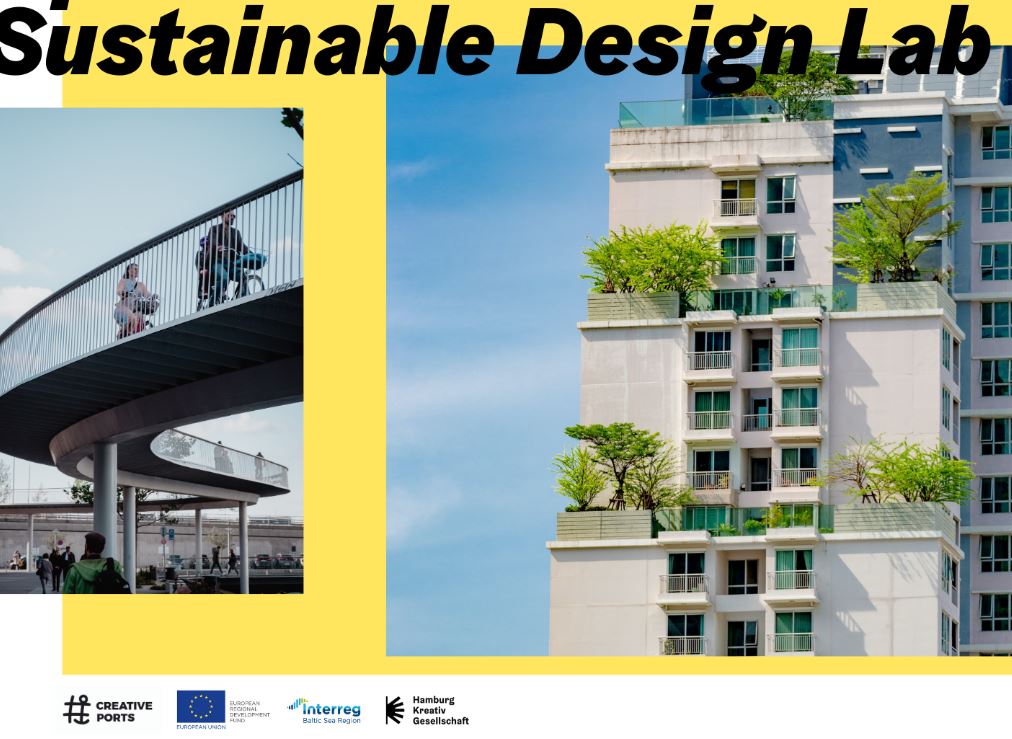Sustainable Design Lab
The Sustainable Design Lab allows up to 5 (in total up to 15) selected Designers from different disciplines and different countries of the Baltic Sea Region to participate in an international Pop Up Prototyping Lab and work on ideas related to the SDG 11 “Sustainable Cities and Communities”.
Due to Corona the small teams will work together digitally and in situ (if possible in person) at least in March and May in their specific countries and potentially meet up physically for a last workshop session and presentation in June 2021 in Riga, Latvia (latter depending on the COVID Situation and travel possibilities).
The collaboration between the different teams and countries will be organized through online sessions, online interaction possibilities and using different online tools. Participants will be able to communicate and interact with each other between the workshops as well. During the workshops, they will learn about sustainable/circular design, but also about the design markets and internationalisation opportunities in each country (Finland, Germany and Latvia).
The hosts will jointly organise prototyping sessions, workshops with experts, different online activities and a final presentation of the prototypes (online or offline).
Hosting Partner: Hamburg KreativGesellschaft https://kreativgesellschaft.org/en/
Contact: Claudia Wondratschke Claudia.Wondratschke[at]kreativgesellschaft.org, Lea Jordan lea.jordan[at]kreativgesellschaft.org
The Sustainable Design Lab allows up to 15 selected Designers from different disciplines and different countries of the Baltic Sea Region to participate in an international program focused on developing prototypes.
The participating designers will be working on creative prototypes related to the Sustainable Development goal 11 “Sustainable cities and communities”. This topic connects all participating partner countries of the BSR (Finland, Latvia and Germany) and is a highly relevant topic in the area of sustainable design.
The meetings are designed to educate designers on sustainable / circular design, to introduce foreign markets to local designers and to build an international network. Throughout the design lab, prototypes that will thematize challenges around SDG11 will be created. Designers can choose their topic of interest and can choose to work alone or in teams. The design lab offers an opportunity to experience new ways of working through an interdisciplinary and international group of skilled designers and allows participants to develop their own ideas in a focused way.
- Foster exchange of ideas and influences in the field of sustainable design on an international level
- Educate designers on possibilities of entering international design markets
- Contribute to sustainable urban development by generating ideas and prototypes around a given topic (sustainable cities and development, SDG 11)
- Experiment with new digital tools for internationalization
A central aim of the Sustainable Design Lab is to encourage idea exchange beyond borders, to learn about tools for digital collaboration and to benefit from different ways of working in an interdisciplinary and international peer group. Various keynotes educate designers on design markets in Latvia, Finland and Germany as well as on the topic of sustainable cities and sustainable design. In different workshops, they experiment with circular design and prototyping. In the end, participants will present their results in a final event. For intermediaries, the Sustainable Design Lab presents the opportunity to gather new insights on workshop methods and use of technology.
Participants of the Sustainable Design Lab will learn about entering new markets through keynote presentations by the participating intermediaries and/or local companies. In the end of the program, participants will be presented with funding opportunities in order to further pursue their prototypes.



